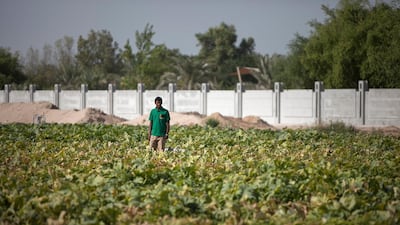All six Arabian Gulf countries import between 80 to 97 per cent of their food. Due to water scarcity and poor soil, it typically costs less to import food than to grow it here. According to the Ministry of Climate Change and Environment, the demand for food will increase by 300 per cent, putting a huge strain on our economies.
We tackle the food-scarcity issue on this week's Beyond the Headlines. Host Naser Al Wasmi is joined by Dr Ismahane Elouafi, Director General at the International Center for Biosaline Agriculture, to discuss how governments are working to better ensure the growth of local food.
We also get into the scientific side of things with Abdul Rahman Al Fraih, a researcher at the Public Authority of Agriculture in Kuwait. Science is key in developing the methods and capacity to grow food locally. The Arabian Gulf, with its arid environment and desert soil, is not ideal — nor are cold, northern hemisphere environments.
The greenhouse has gone through centuries of development to get to the point where growing food in - 20 degrees C was possible.
Follow Beyond the Headlines and the rest of our shows on Apple Podcasts.

